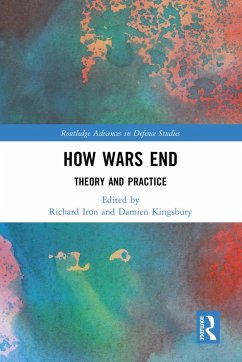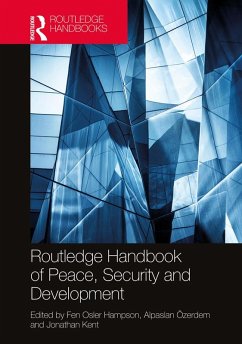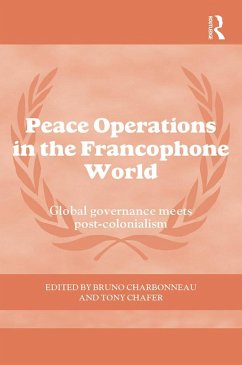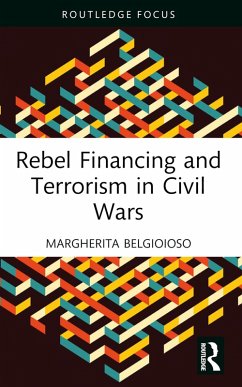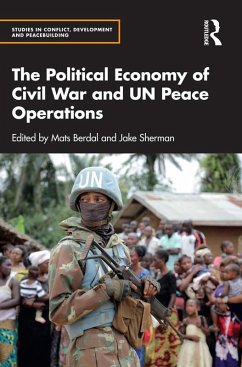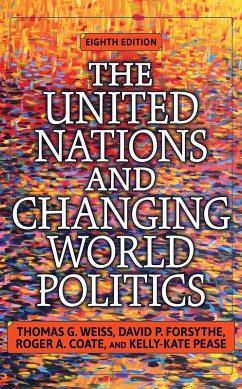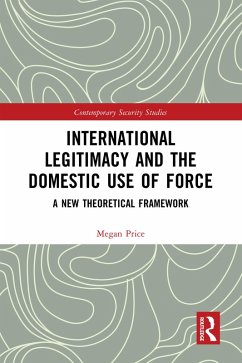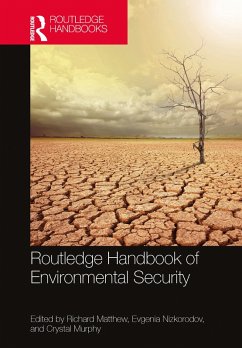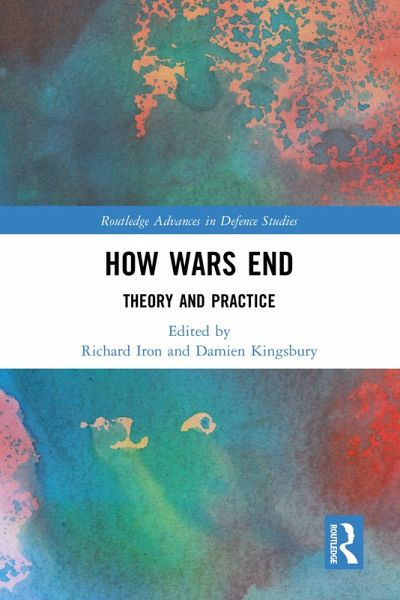
How Wars End (eBook, PDF)
Theory and Practice
Redaktion: Kingsbury, Damien; Iron, Richard
Versandkostenfrei!
Sofort per Download lieferbar
37,95 €
inkl. MwSt.
Weitere Ausgaben:

PAYBACK Punkte
19 °P sammeln!
This book addresses one of the most important issues in international relations - how wars are ended.The volume draws on the direct experience of both soldiers and academics, who in each case have also been advisers on fighting and ending wars. Unlike more theoretical works, the book draws on first-hand experiences in the case studies, which include the wars in Iraq, Afghanistan, Sierra Leone and Indonesia, among others. The volume is constructed around a series of themes. The first theme is why wars start and how they can be understood, based on the assumption that knowing how, and why, wars ...
This book addresses one of the most important issues in international relations - how wars are ended.
The volume draws on the direct experience of both soldiers and academics, who in each case have also been advisers on fighting and ending wars. Unlike more theoretical works, the book draws on first-hand experiences in the case studies, which include the wars in Iraq, Afghanistan, Sierra Leone and Indonesia, among others. The volume is constructed around a series of themes. The first theme is why wars start and how they can be understood, based on the assumption that knowing how, and why, wars start is fundamental to understanding how they might end. The second is what sustains wars and what makes them difficult to end. Again, once wars start, understanding what keeps them going is critical to how to end them. The third focuses on the role of external intervention in ending wars, including as a belligerent partner in war, as a peacemaking or peacekeeping force, and as a mediator between warring parties. The fourth addresses the issue of 'ripeness' and the right conditions for ending wars. The fifth addresses the modalities for ending wars and creating peace, with the sixth theme being focused on transitions to peace and what is required to help make those transitions successful.
The book will be of interest to students of military, strategic and security studies, peace studies and International Relations.
The volume draws on the direct experience of both soldiers and academics, who in each case have also been advisers on fighting and ending wars. Unlike more theoretical works, the book draws on first-hand experiences in the case studies, which include the wars in Iraq, Afghanistan, Sierra Leone and Indonesia, among others. The volume is constructed around a series of themes. The first theme is why wars start and how they can be understood, based on the assumption that knowing how, and why, wars start is fundamental to understanding how they might end. The second is what sustains wars and what makes them difficult to end. Again, once wars start, understanding what keeps them going is critical to how to end them. The third focuses on the role of external intervention in ending wars, including as a belligerent partner in war, as a peacemaking or peacekeeping force, and as a mediator between warring parties. The fourth addresses the issue of 'ripeness' and the right conditions for ending wars. The fifth addresses the modalities for ending wars and creating peace, with the sixth theme being focused on transitions to peace and what is required to help make those transitions successful.
The book will be of interest to students of military, strategic and security studies, peace studies and International Relations.
Dieser Download kann aus rechtlichen Gründen nur mit Rechnungsadresse in A, B, BG, CY, CZ, D, DK, EW, E, FIN, F, GR, HR, H, IRL, I, LT, L, LR, M, NL, PL, P, R, S, SLO, SK ausgeliefert werden.




